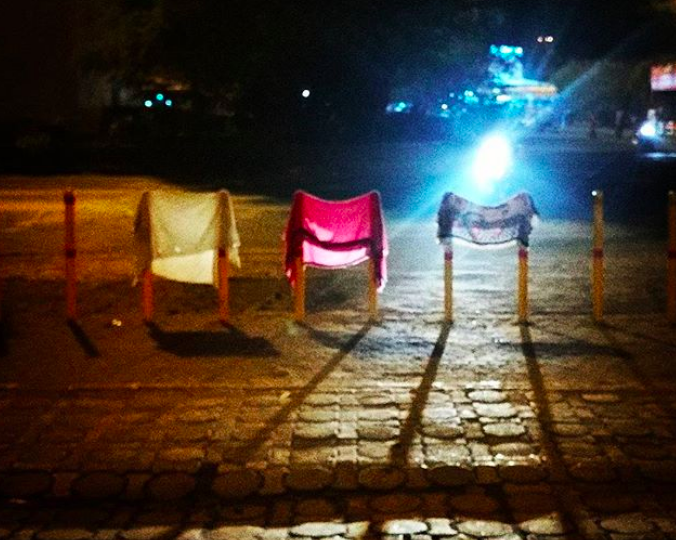
I lean out of the train, gazing at the tracks disappearing behind me. As the train hurtles on, I look out at the city of Mumbai, shrouded in darkness. The second-class ladies’ compartment of the last local CST-Panvel train I am in is empty. After three years of travelling in the noisy, overcrowded Mumbai local trains by day, I am so accustomed to the crowds and the chaos of the trains and stations that it is disquieting to be alone in the compartment. The song I’m listening to ends. In the silence before the next song, I listen to the rhythmic pulsing of the train on this quiet night, broken only by muted announcements as we stop at stations no one embarks or disembarks at. The air is cool on my face as I look out at the twinkling lights of the city that never sleeps. A few cars are slowly snaking their way under the bridge. As the train pulls into the bridge over Vashi Creek, the past melts away, and I feel more myself than ever.

I had never really thought I’d live the kind of life that involves travelling by the last local train. Especially alone. In fact, the first time I truly thought about the last local at all was when my college professor, Dr Shilpa Phadke, recounted her memories of it in class one day. She told us about the nights she and her colleagues would take the last train from one end of the city to the other to interview women on their long journey home. They would ask these women about risk, freedom, choices, travel, and loitering in the metropolis of Mumbai. Their interviews subsequently formed the basis of their arguments in their well-known book Why Loiter? Women and Risk on Mumbai Streets, which is a testament to the pleasures of risk-taking for women. I still remember how Dr Phadke described her co-passengers on those nightly train rides: women, young and old, falling asleep in solitary compartments, exhausted by a hard day’s work; and keeping them company, a lone police officer in the ladies’ compartment, the State’s only attempt at protecting its womenfolk after midnight. Sitting in my sunny classroom a few months into the life-changing experience of moving to Mumbai, I tried to imagine the overflowing trains and the bustling, noisy stations as they would be at night: silent and deserted. And I couldn’t picture it.
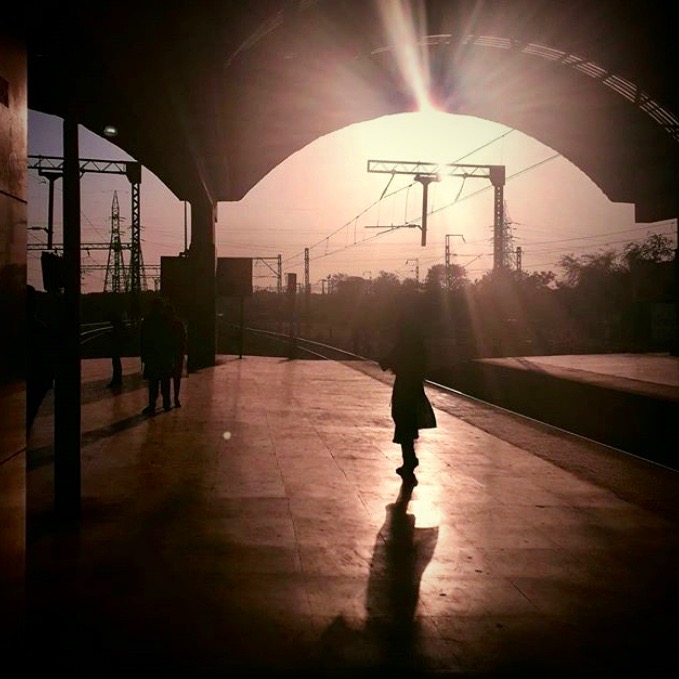
My childhood and teenage years, spent in my hometown of Kolkata, were incredibly sheltered. Everything was walking distance or a short car ride away. Moving to Delhi for my undergraduate studies was painful in more ways than one. Delhi taught me what it meant to be a woman in a country where women are treated as second-class citizens. Delhi taught me to fear men. The rape culture of Delhi was not a revelation. It was a slowly dawning horror that culminated with the gang rape and murder of a 23-year old physiotherapy student on a moving bus in 2012. I was in my second year of college. In a matter of days, the remaining dregs of hope I had of the possibility of freedom and safety in Delhi vanished as I saw the brutality of the city and the apathy of its authorities on full display.
My progressive women’s college in Delhi, the seemingly friendly landlady who provided paying guest accommodation, and my extended family members all practised moral policing in the name of safety. And I let them, because most of the time I was terrified of becoming the next girl to be stalked, masturbated to, groped. Or worse. Sometimes, I was even grateful for their scrutiny, despite being a feminist. Their rules felt like an added layer of protection against a leering, violent world.
Then I moved to Mumbai for my MA, which felt like another planet altogether. Oh, the misogyny was still there. My extended family in Mumbai was as judgmental about my clothes and whereabouts as my relatives in Delhi had been. Our broker and building society still had strict rules forbidding “loose” behaviour (only for women, of course). And my stomach still twisted itself into knots of worry whenever I was in a deserted street at night.
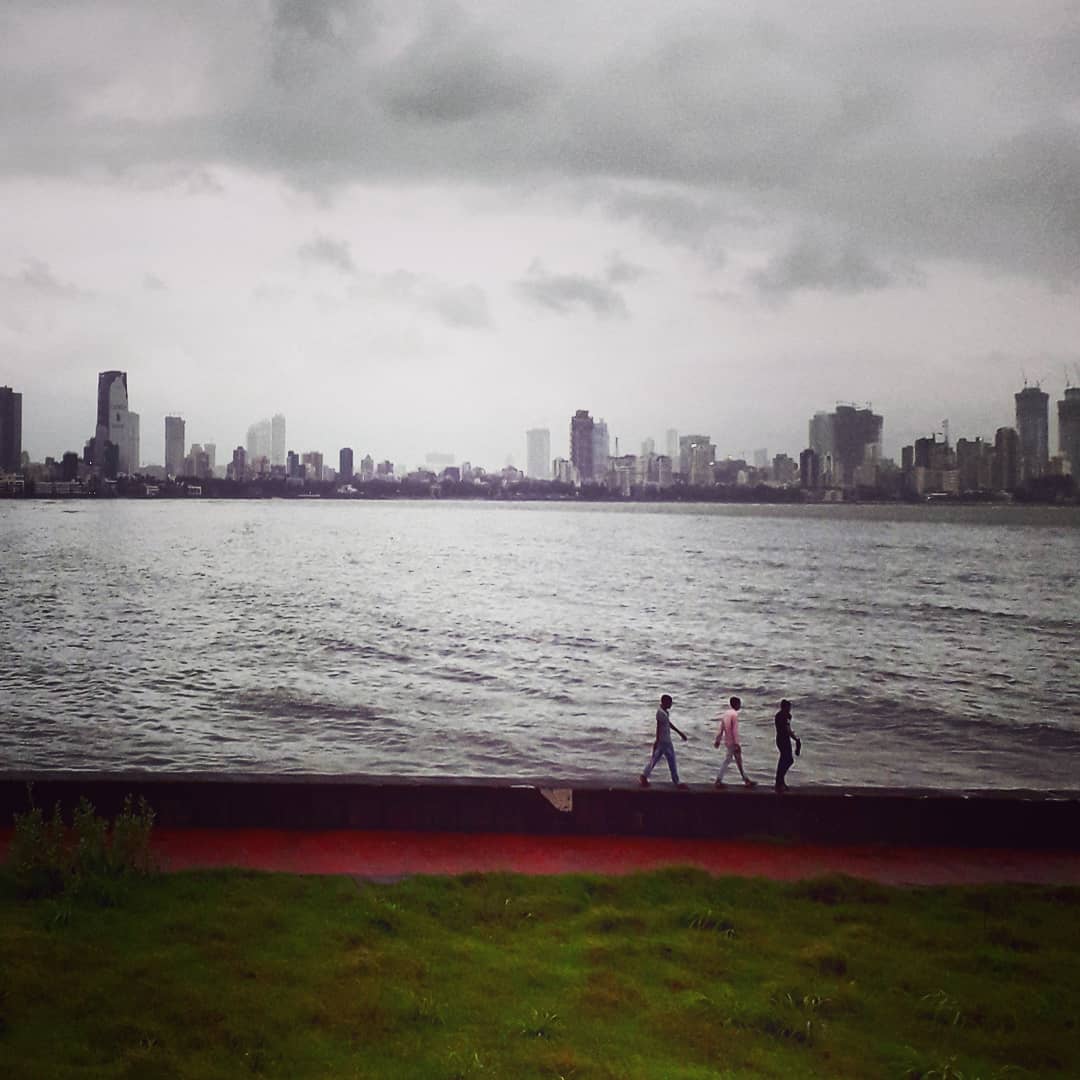
I fell in love with Mumbai, hard, when I saw how women were treated in public spaces. I routinely saw very young women in short shorts and strappy vests coolly travelling in local trains, unchaperoned, and large crowds of men not ogling them. I got lost in Dadar station several times and learned to ask people for help instead of nervously avoiding eye contact with them. Once, when I accidentally boarded the general compartment of the Mumbai local during rush hour, when everyone is packed like sardines, the men around me automatically moved away from me to give me space, shoving and shouting at any man who accidentally brushed against me with the warning, “Ladies hai! Dikhta nahi hai kya?” (Can’t you see she’s a woman!?) And it happened again and again, until I got used to it and began to learn to relax even in a compartment packed with men.
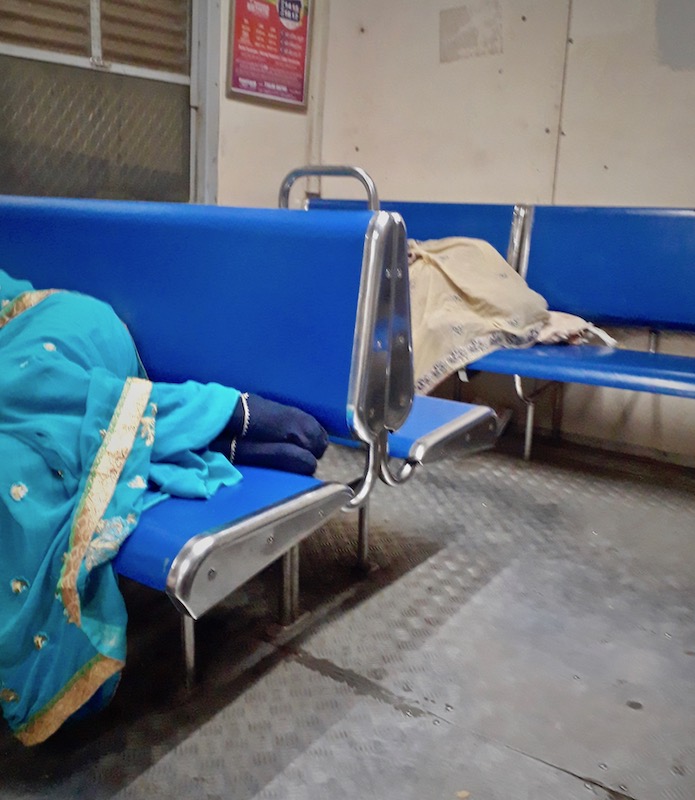
After my MA, I longed for the freedom of Mumbai, and I was back in the city soon after. I chose un-hip, far-flung Vashi, and rented a tiny one-bedroom apartment there. When concerned relatives asked me how I intended to travel so far to the city on a regular basis, I would say nonchalantly, “In the train!” And I did. The trains in Mumbai enabled me to go where I pleased and do what I pleased, without having to worry much about expense or my safety.
The first time I took the last local train, I was with a college friend who was as in love with the city of Mumbai as I was. We’d gone on a bar crawl in South Bombay and were going back to my place in Vashi, a good hour or so away by train. Still a little tipsy, we laughed and giggled as we climbed onto the train, reliving the night’s high points as we sped away from the city and to the suburbs. I watched as my friend snuggled into a seat and fell asleep soon after, snoring gently, and I felt a great rush of affection. For us, for the night we’d had, and for the wonderful city that had made it possible. I held the pole near the door tightly and leaned outwards, thinking to myself, “I think I can do this alone.”
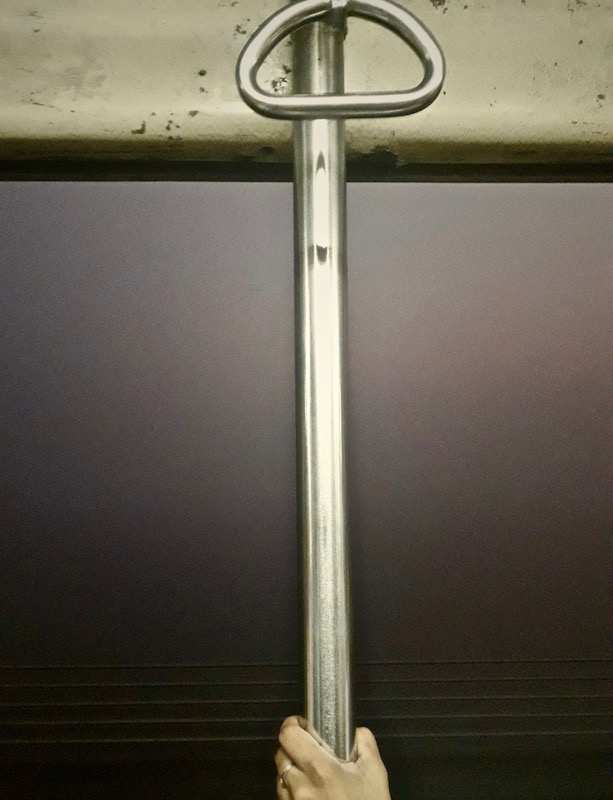
And I did. The last local to Vashi quickly became my reliable ride back home when I made plans with friends. I’d take it home after late-night movies at the closest IMAX, some twenty kilometres away. Weekends would be spent zig-zagging across the city, going to cafes, movies, museums, and pubs, only to go home by the last local. Returning from a spontaneous solo trip to Ajanta-Ellora when the train got delayed by over six hours, I took the last local to Vashi directly from Thane station, bags in hand, grinning ear to ear.
Looking back, I understand that the great gift of the last local train was how much learning and unlearning I had to do to even realise it was an option at all. The wonderful thing about growing up far away from your own home is that you get to look at the world with new eyes. Yes, being safe and cautious and having a healthy amount of fear is all good and necessary in a dangerous world. But we must ask ourselves: What is our fear based on? When I moved to Mumbai, I was in a new city by myself. I gave myself the freedom to choose. And I chose to re-examine my assumptions. Maybe it was possible to ask strange men for directions without being afraid of seeming vulnerable. Maybe I could plan my outfit without bothering about the fact that I would be travelling on public transport. Maybe I could take the train by myself, alone, late at night.
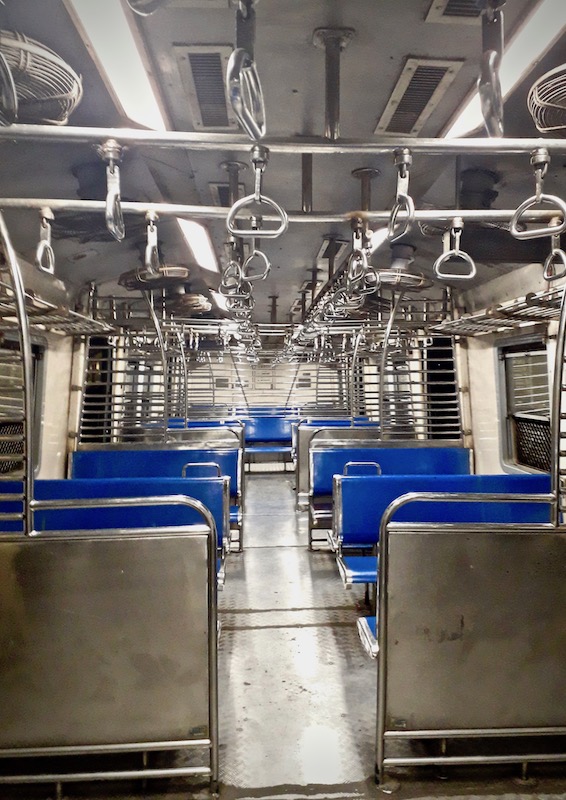
In Mumbai, all I needed to go home to Vashi was Rs 20 at the most and a train schedule. The local train did all the rest. It was enough that the last local was an actual option for me. It was accessible, it was safe-ish, it was on time. Its silver, rattling interiors were always there for me. My sense of ease in the local trains made me feel at home in the city, and by extension, in the world. I felt like I belonged in the last local train, that I had as much a right to be there as the old man sleeping in the corner and the lone police officer playing Angry Birds on her phone. I felt like I could take up space and use a service and expect it to not be harder or impossible just because I am a woman. I felt like a grown-up, taking risks, being aware, making choices. Making memories.
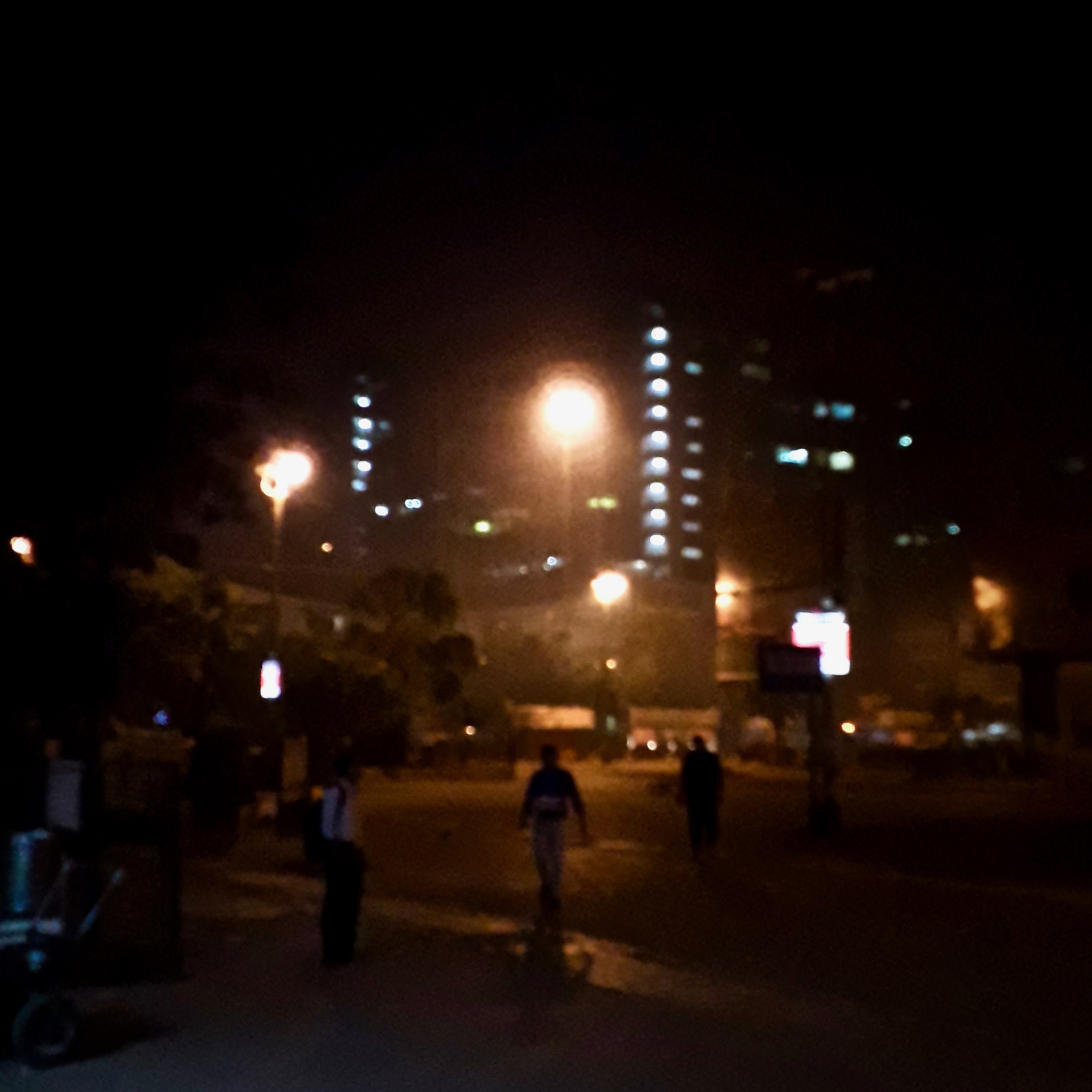
My greatest memory of Mumbai’s last local train is from a night when I visited a dear friend in his house in Chembur for a planned evening of drinking and commiserating over life. Our mid-twenties had brought with them an intense quarter-life crisis. For quite some time, we had been picking our way through the wilderness of work and family obligations while also trying to not lose sight of the winding paths that led to our dreams. After copious amounts of drinking and dining, my friend told me to just crash at his place. But I wanted to wake up in my own bed the next day. I checked the m-Indicator app for the train schedule. And lo! The last train to Vashi would leave Chembur station in an hour. We spent the next thirty minutes arguing about the wisdom of my plan to take the last local in my mildly inebriated state while also hurriedly pouring and finishing our last drinks for the night. Despite my friend’s protestations, we climbed into an auto-rickshaw and went to the station. When we reached the ticket counter, he seemed to finally comprehend that I was very serious about going home. Blinking at me through the haze of alcohol and cigarettes, he said, “You can’t go alone in the train like this. You’re not sober. It’s not safe. I’m going to go drop you to Vashi.” I looked at his tall frame swaying in the fuzzy light of the station and laughed. “If you come to drop me to Vashi in this state, I’ll have to escort you back. We’ll just keep escorting each other to our homes through the night.”
I can’t remember if he finally did accompany me all the way to Vashi. In the end, the beauty was, he didn’t need to.
This article was originally published in the October 2020: Risk and Sexuality issue of In Plainspeak. इस लेख को हिंदी में पढ़ने के लिए यहाँ क्लिक करें।
Cover Image: Tanvi Khemani